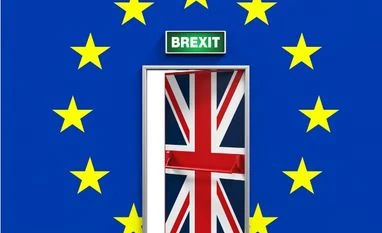Identity is one of those concepts that we’re all familiar with on the surface, but would probably struggle to define. Here, we’re going to define it broadly as the image an actor has of themselves. We all imagine ourselves to be a certain person – an image we make up of lots of individual components. We are English, we are a Grimsby Town fan, a gamer, and so on. Those components are what we call roles, and together they create our identity.
Countries, such as the UK, have identities too. They imagine themselves to be some things, and tell themselves and others that they are those things. Comb through the speeches of any British politician and you’ll find an argument as to what the UK is, and what it can be, based on that imagined self. For example, see Theresa May’s Lancaster House speech in January 2017, where she laid out her plan for Brexit. She argued that the UK’s “history and culture is profoundly internationalist”, and that that positioned it very well to build a “truly global Britain”.
This raises one of the two main sources of crises in identity: the tension between what we imagine ourselves as being, and what we are. The other great source is a tension between our identity and what others believe it is. I might say I’m an avid player of computer games but if I were oblivious to the unveiling of new, hotly anticipated titles, others may question my claim to the tag of “gamer”. Both of these processes are destabilising, and disruptive.
A national identity crisis
Brexit has triggered an identity crisis that captures both tensions. The UK is asking questions about the distance between its identity and the reality of what it is as well as facing a sceptical audience overseas. Many people outside the UK neither understand why Brexit is happening, nor see it as a positive step for anyone.
Before the election, May argued that the UK should become the “strongest and most forceful advocate” for free trade in the world. Yet, as the UK prepares to leave the single market, it faces less free trade with the European Union than it currently enjoys. How clearly can the UK advocate for free trade, if it seems that it is turning its back on it?
Similarly, May argued that the UK should be open for global talent. Yet at the same time, it is seeking to tighten border controls. If the UK is to be open to talented people, the government needs to clearly lay out a message that it is easy to come and work in the UK. As it is, the message is muddled.
The view from abroad
Even among non-EU states, such as Switzerland, there is confusion as to why the UK wants to leave. Their understanding is that the UK had found a clear identity within the European Union – as a leading voice within, which in turn strengthened its voice without. Now, it’s arguing that abandoning that leading position within the union will strengthen its voice without.
This complete reversal compounds their confusion as to what the UK’s identity is – and therefore, changes the way they interact with the UK. If, as is often reported, states such as Germany see Britain as a less pragmatic country than previously, then they will push for greater distance between the UK and themselves, to keep the British away from disrupting processes important to them.
Britain’s reputation within the EU may not always have been a positive one but it was certainly the case that European leaders felt Britain was better within the EU than outside. Now the UK has weakened its reputation for pragmatism among European leaders, that attitude appears to be shifting quickly.
The Brexit identity crisis is consuming the entire country. What does it mean to be the UK and what does that mean for Brexit? What does that mean for what the nation does afterwards? Without clarity on these things, there can be no clarity on what the country wants from Brexit. This confuses both the UK’s negotiating position, but also the responses of others. That, in turn, reduces the likelihood of agreeing on a successful, or even orderly, Brexit deal.
As long as the confusion continues, the crisis will continue. The final resolution of an identity crisis is the formation of a new identity. That requires serious thought about what the UK should aspire to be, and therefore do, in the world. This requires more than breezy assertions about free trade, promises of a minister for peace, or the like.
It requires instead a return to first principles. What things can the UK not change about itself, or change so slowly as to be beyond the ability of a single government to shift? That the UK is an island, for example, is an important component in such reflection. Similarly, the UK’s proximity to Europe, and the long historical entanglements between the two, need to be included in any consideration of identity.
Whether the country is up to the task will become sharply apparent as the Brexit process winds on.
Timothy Oliver, Lecturer in Politics, University of Hull
This article was originally published on The Conversation. Read the original article.
To read the full story, Subscribe Now at just Rs 249 a month
Already a subscriber? Log in
Subscribe To BS Premium
₹249
Renews automatically
₹1699₹1999
Opt for auto renewal and save Rs. 300 Renews automatically
₹1999
What you get on BS Premium?
-
Unlock 30+ premium stories daily hand-picked by our editors, across devices on browser and app.
-
Pick your 5 favourite companies, get a daily email with all news updates on them.
Full access to our intuitive epaper - clip, save, share articles from any device; newspaper archives from 2006.
Preferential invites to Business Standard events.
Curated newsletters on markets, personal finance, policy & politics, start-ups, technology, and more.
Need More Information - write to us at assist@bsmail.in
)